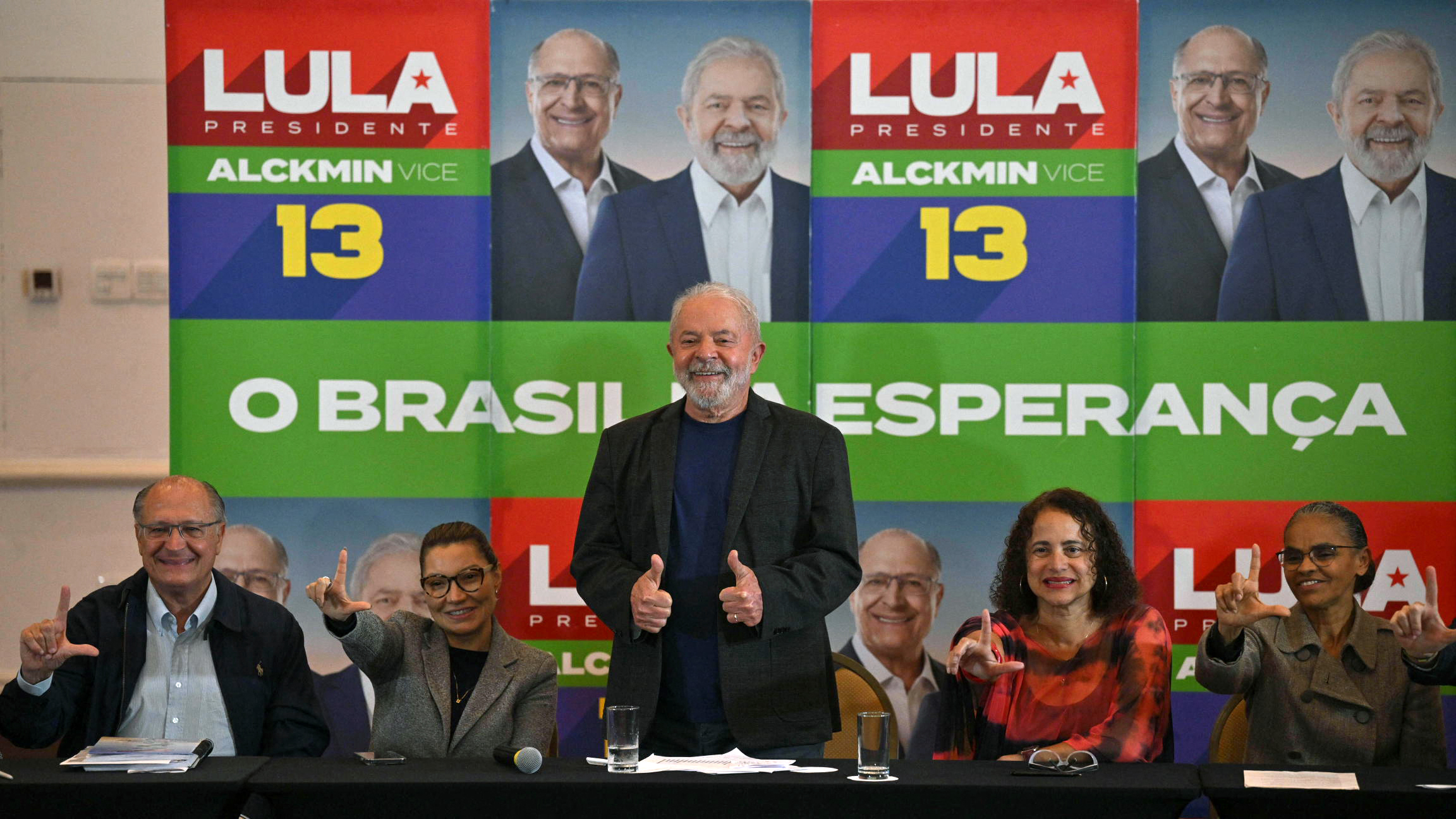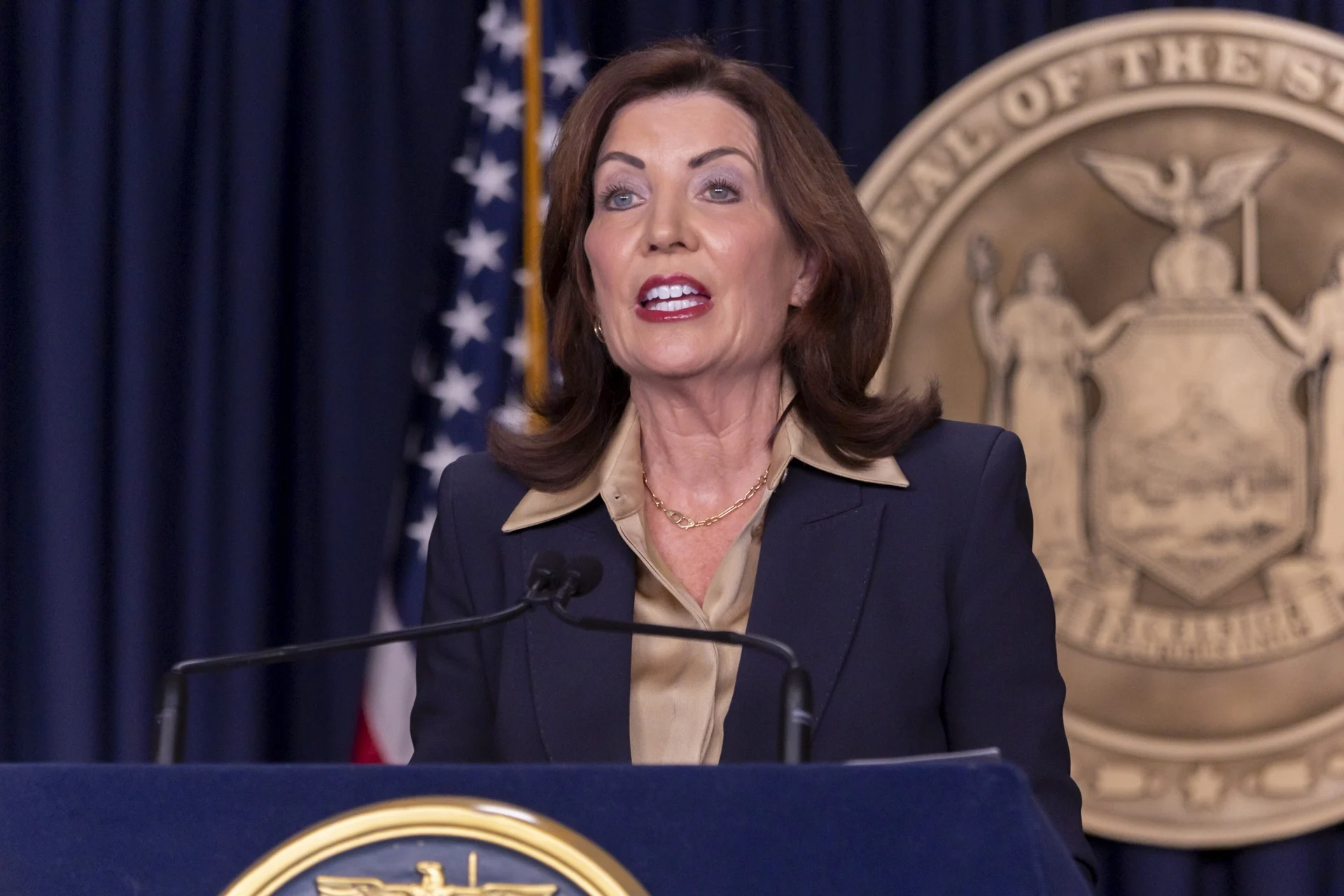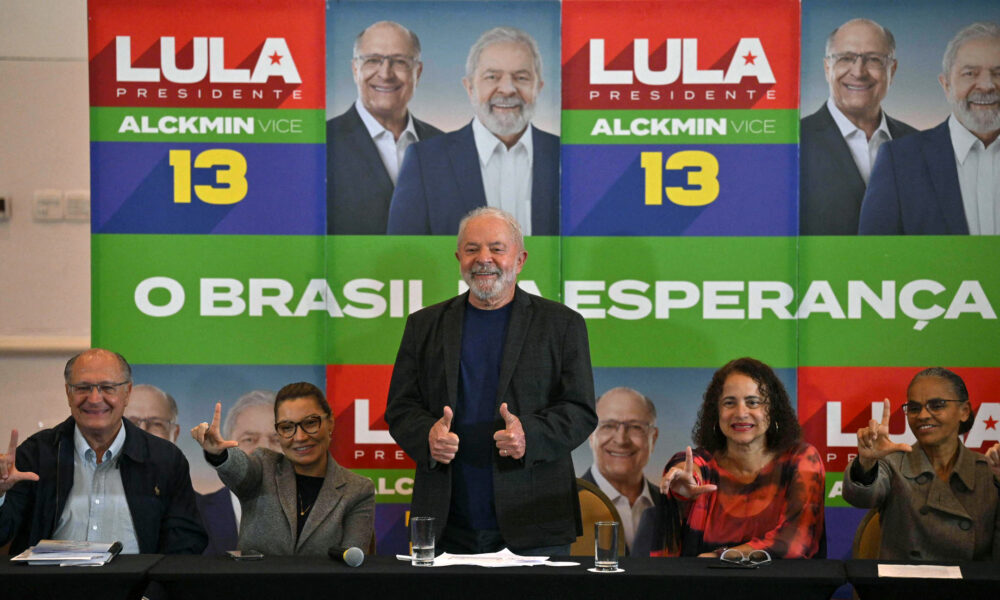International
Lula must fight for center to win Brazil runoff: analysts

AFP | Javier Tovar
To prevail in Brazil’s tighter-than-expected presidential runoff, leftist veteran Luiz Inacio Lula da Silva will have to strike alliances with centrists, woo the business sector and offer voters more than just his legacy, analysts say.
The long-time front-runner may have won Sunday’s first-round vote against far-right incumbent Jair Bolsonaro, but the latter appears to have the momentum, having shattered pollsters’ forecasts of a rout to finish within five points of Lula (48 percent to 43) and force a second round on October 30.
If Lula, the charismatic but tarnished ex-president who led Brazil from 2003 to 2010, is to stymy Bolsonaro, analysts say, he will have to redouble his efforts to win back the political middle, still disillusioned over the devastating corruption charges — since annulled — that controversially sent him to jail in 2018.
The 76-year-old Workers’ Party (PT) founder acknowledged as much himself after Sunday’s disappointing results.
“We’ll have to spend less time preaching to the choir and more time talking to voters… those who appear not to like us,” he said Monday after meeting his campaign team to chart their strategy for the final stretch.
“Little peace-and-love Lula is ready to talk to everyone.”
Deal-making time
Known as a deft politician, Lula will need to tap that acumen to strike alliances.
“He will have to make some gestures and concessions” to the center-left and center-right, whose votes Bolsonaro will also be after, said political analyst Leandro Gabiati, head of consulting firm Dominium.
Lula already made a giant nod to centrists by picking center-right veteran Geraldo Alckmin — the candidate he beat in the 2006 presidential race — as his running mate.
Now he needs to chase the votes that went to Sunday’s third- and fourth-place finishers, center-right candidate Simone Tebet (four percent) and center-left candidate Ciro Gomes (three percent).
Lula got a clutch endorsement Tuesday from Gomes’s Democratic Labor Party (PDT), despite a long history of animosity between the two men.
Gomes grudgingly went along, saying in a video he “supported” the endorsement as “the only exit, under the circumstances.”
Getting the backing of center-right Senator Tebet, an anti-abortion Catholic, could meanwhile be key to luring socially conservative women voters.
She has hinted she is ready to back Lula. But it will be another matter winning over her party, the Brazilian Democratic Movement (MDB), which has a strong pro-Bolsonaro wing.
“Make your decision soon. Mine is already made,” Tebet told the divided party’s leadership.
Big spending shelved
Lula will also have to sell the business sector on his plans for Latin America’s biggest economy.
He presided over a watershed economic boom in the 2000s, blending market-friendly policy with ambitious social programs.
But Bolsonaro has more backing from the market this time around — as seen when stocks surged Monday on his better-than-expected showing.
Lula will have to be “malleable” on economic policy to woo the business sector, said Arthur Ituassu, professor of political communication at Pontifical Catholic University in Rio de Janeiro.
The former president will likely have to renegotiate his plans to expand social spending and overhaul the tax system, Ituassu said.
“That’s going to be fundamental,” he said. “That’s how he wins the volatile center.”
Back to the future?
Lula, who left office basking in a record 87-percent approval rating, also must stop leaning so heavily on his legacy and offer voters concrete, forward-looking policy plans, analysts say.
“He’s only talked about his achievements from his past administrations,” said Paulo Calmon, a political scientist at the University of Brasilia.
“He needs to present plans for the future.”
If that weren’t enough, the former president also will have to perform one final feat of political gymnastics: execute all the above without losing the 57 million votes he won Sunday.
“A lot of voters who aren’t necessarily on the left voted for Lula out of anti-Bolsonaro sentiment,” said Dominium’s Gabiati.
“But if Bolsonaro improves his message, he might reverse that rejection… and win that vote.”
International
New York Announces First 2,000 Seats in Universal 2-K Program

The Governor of New York, Kathy Hochul, and New York City Mayor Zohran Mamdani took another step today in their universal early education agenda by announcing the communities that will have access to the first 2,000 seats in the new 2-K program this fall — an initiative backed by a $73 million investment.
The funding is part of the $1.2 billion package previously unveiled by Hochul to strengthen child care and early childhood education across the city, one of the key campaign promises of the now Social Democratic mayor.
At the time of the announcement, the governor also outlined additional funds to reinforce the existing 3-K early education infrastructure, a program launched under former Mayor Bill de Blasio (2014–2021).
When the 2-K initiative was introduced in January, Mayor Mamdani explained that its first phase would offer 2,000 seats, with the goal of eventually expanding into a universal program — a commitment supported by the governor.
State investment in child care and preschool services is expected to increase to $4.5 billion by fiscal year 2027.
Among the first communities set to benefit from the 2,000 seats are Upper Manhattan and Inwood — areas with large Dominican populations — as well as Fordham and Kingsbridge in the Bronx, a borough with a Latino majority.
In East Brooklyn, Canarsie, Brownsville, and Ocean Hill will also be included. Meanwhile, Ozone Park and the Rockaways are among the neighborhoods that will see the rollout of the 2-K program.
International
Warner Bros. Developing First ‘Game of Thrones’ Movie With ‘Andor’ Writer

Warner Bros. is developing the first feature film based on the hit saga Game of Thrones, with Beau Willimon — screenwriter of Andor — attached to direct, according to a report published Tuesday by Page Six.
The project, currently in early development, will focus on the conquest of King Aegon I Targaryen. A separate television adaptation centered on the same historical storyline within the franchise is also in early stages at HBO.
However, the outlet noted that it remains unclear whether the film will move forward following the recent acquisition of Warner Bros. Discovery by Paramount Skydance.
If the merger is finalized, the movie could potentially be shelved, although that scenario appears unlikely given that the Game of Thrones franchise remains one of HBO’s most valuable and beloved properties.
After six seasons adapting the work of George R. R. Martin, the platform expanded the universe with House of the Dragon, a prequel series set 200 years before the events of Game of Thrones that explores the history of House Targaryen.
International
Spain’s Prime Minister to Address Nation Amid Trump’s Trade Threats

The Prime Minister of Spain, Pedro Sánchez, will deliver an institutional address this Wednesday at the Moncloa Palace regarding the escalating situation in the Middle East and recent threats directed at Spain by U.S. President Donald Trump.
The Spanish government announced that Sánchez will make a statement at 9:00 a.m. local time to outline his position on the latest developments following the U.S. and Israeli attacks on Iran.
Sánchez is expected to reiterate Spain’s reasons for opposing the use of U.S. military bases on Spanish soil in the operation—an action he has already described as being outside international law—while also expressing criticism of the Iranian regime.
Government sources indicated that the address had been planned prior to Trump’s remarks criticizing Spain’s stance. However, following those comments, Sánchez is now also expected to respond directly to the U.S. president’s statements.
Trump has threatened to “cut all trade with Spain” and said he wants “nothing to do” with the country after Madrid refused to authorize the use of the Morón and Rota military bases in southern Spain for operations against Tehran.
The U.S. president also labeled Spain “a terrible NATO partner” and warned that “no one” would tell him he could not use the facilities.
In response, the Spanish government stated that Spain fulfills its commitments to NATO and European defense. It also warned Trump that any review of bilateral trade relations must respect international law and the agreements in place between the European Union and the United States.
-

 International2 days ago
International2 days agoIran Reports 201 Dead, 747 Injured After U.S. and Israeli Strikes
-

 International2 days ago
International2 days agoPope Leo XIV Urges End to ‘Spiral of Violence’ in Middle East
-

 International4 days ago
International4 days agoTrump Floats “Friendly Takeover” of Cuba Amid Rising Tensions
-

 Sin categoría3 days ago
Sin categoría3 days agoTrump: ‘We Think It’s True’ Amid Claims Iran’s Supreme Leader Was Killed
-

 International3 days ago
International3 days agoSecurity Council to Hold Emergency Meeting on Middle East Crisis
-

 International1 day ago
International1 day agoBrazil’s Supreme Court Rejects Bolsonaro’s Bid for House Arrest
-

 International4 days ago
International4 days agoArgentina’s Senate Reviews Milei-Backed Labor Overhaul
-

 International1 day ago
International1 day agoAnti-ICE Billboard Campaign Targets Immigration Spending in 31 U.S. Cities
-

 International1 day ago
International1 day agoTrump Warns of ‘Major Wave’ of Attacks as Iran Conflict Escalates
-

 International1 day ago
International1 day agoMexico Calls for Immediate Probe After National Dies in ICE Custody
-

 Central America1 day ago
Central America1 day agoPanama Canal Monitoring Trade as Middle East Conflict Disrupts Shipping
-

 International1 day ago
International1 day agoBolivia Orders Three Investigations Into Deadly Military Plane Crash
-

 International5 hours ago
International5 hours agoNew York Announces First 2,000 Seats in Universal 2-K Program
-

 International6 hours ago
International6 hours agoSpain’s Prime Minister to Address Nation Amid Trump’s Trade Threats
-

 Central America5 hours ago
Central America5 hours agoGuatemala’s Attorney General Fails in Bid for Top Court Seat Amid Corruption Allegations
-

 International5 hours ago
International5 hours agoWarner Bros. Developing First ‘Game of Thrones’ Movie With ‘Andor’ Writer






























